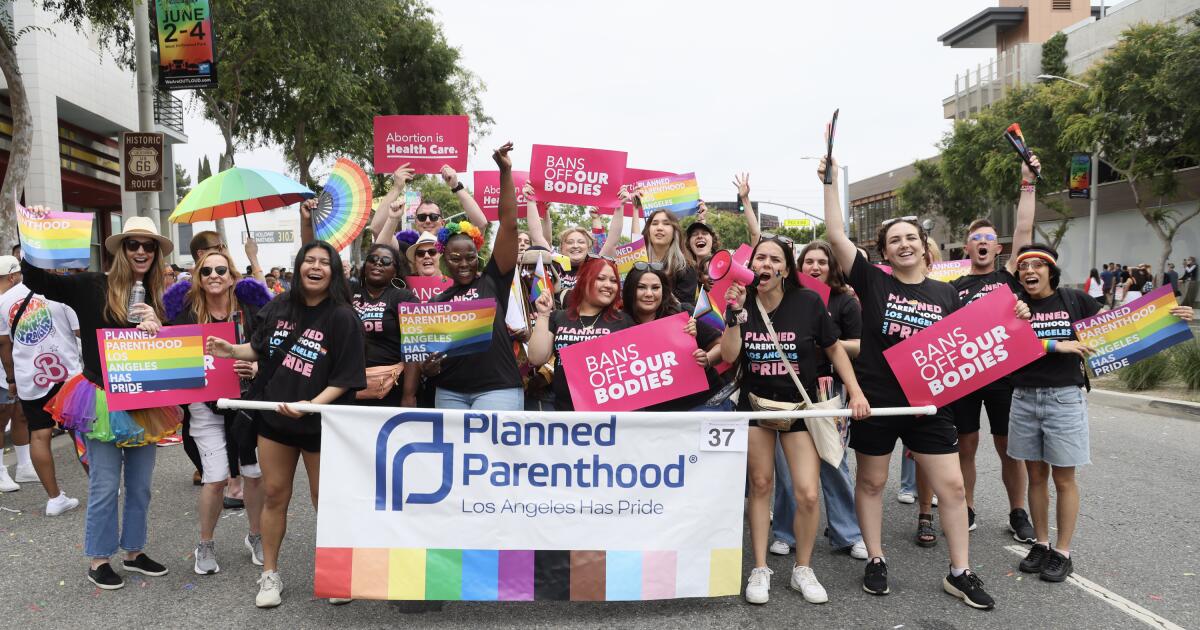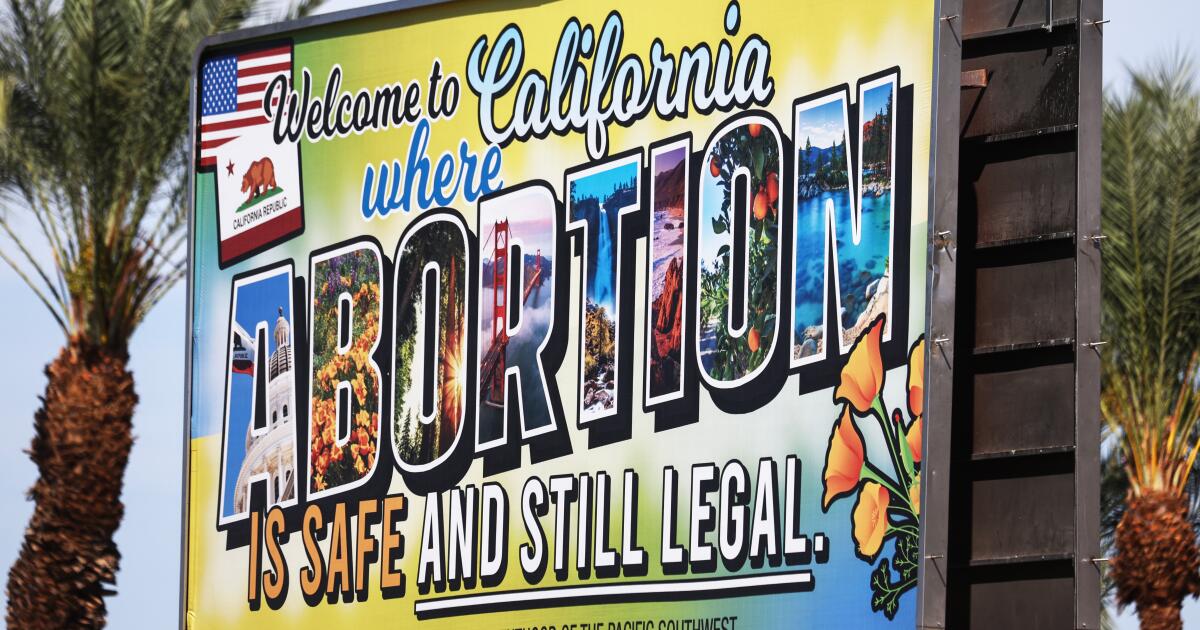Gov. Gavin Newsom approves $90 million for Planned Parenthood
SACRAMENTO — Gov. Gavin Newsom signed a bill on Wednesday to provide $90 million to Planned Parenthood, a move intended to help offset the losses from recent federal cuts targeting abortion providers.
“These cuts were designed to attack and assault Planned Parenthood,” said Newsom, speaking at a news conference near the Capitol. “They were not abortion cuts; they were attacks on wellness and screenings and they were attacks on women’s healthcare.”
The Republican-backed “One Big Beautiful Bill Act,” signed last year by President Trump, blocked federal Medicaid funding from going to Planned Parenthood. More than 80% of the nearly 1.3 million annual patient visits to Planned Parenthood in California were previously reimbursed by Medi-Cal, the state’s version of Medicaid.
Sen. John Laird, who authored the legislation for the funding, Senate Bill 106, said the measure showed that California won’t back down. “This is us standing up to the immediate cut that was in that bill,” said Laird, (D-Santa Cruz). “This is how we are fighting back.”
Jodi Hicks, chief executive officer of Planned Parenthood Affiliates of California, thanked legislators for their support and said the organization could not survive without support from the state. She said Planned Parenthood would always fight against federal attacks but “needed an army” this time to stand beside them.
During the news conference, First Partner Jennifer Siebel Newsom expressed frustration with reporters for asking off-topic questions and said the media should be more concerned about women’s issues.
“All of these questions have really been about other issues,” she said. “This happens over and over and over again — (and we) wonder why we have such a horrific war on women in this country.”
Planned Parenthood offers a range of services, including abortions, birth control, cancer screenings and testings for sexually transmitted diseases. A coalition of states, including California, filed a lawsuit last year against the Trump administration over the cuts to the nonprofit. The states argue in the ongoing lawsuit that the measure violates the spending powers of Congress by singling out Planned Parenthood for negative treatment.
Senate Bill 106 has drawn ire from Republicans, who question why funding is going to Planned Parenthood when many hospitals in the state need more financial support.
“For rural Californians, this conversation is about access to care,” Sen. Megan Dahle (R-Bieber) said in a statement from the Senate Republican Caucus. “Hospitals are cutting services or facing closure, forcing families to drive hours for life-saving treatment. State lawmakers should prioritize stability for these communities.”


